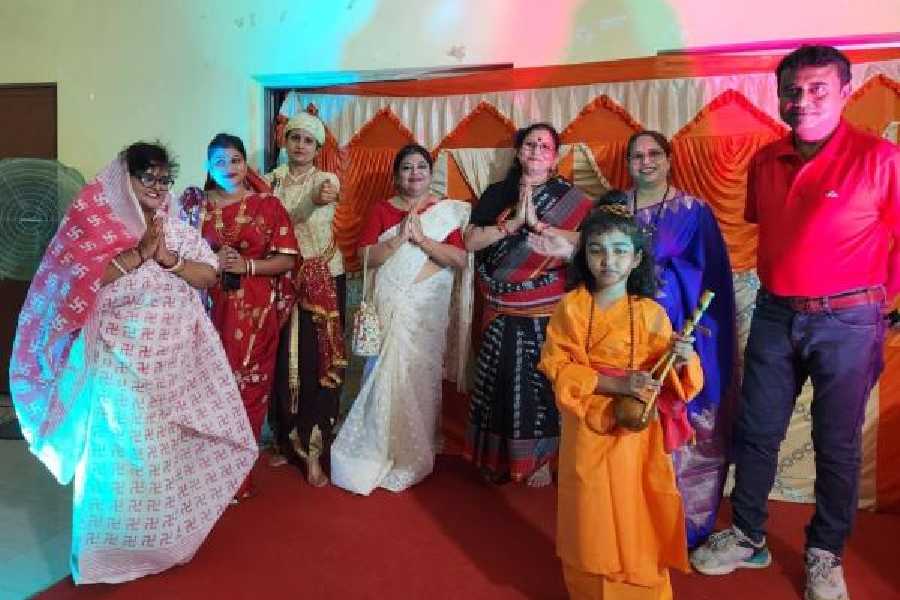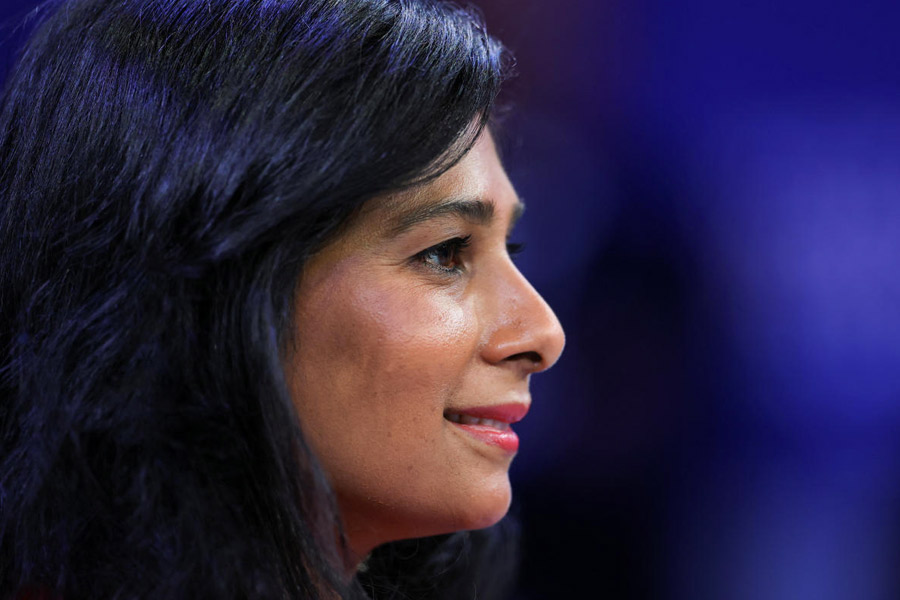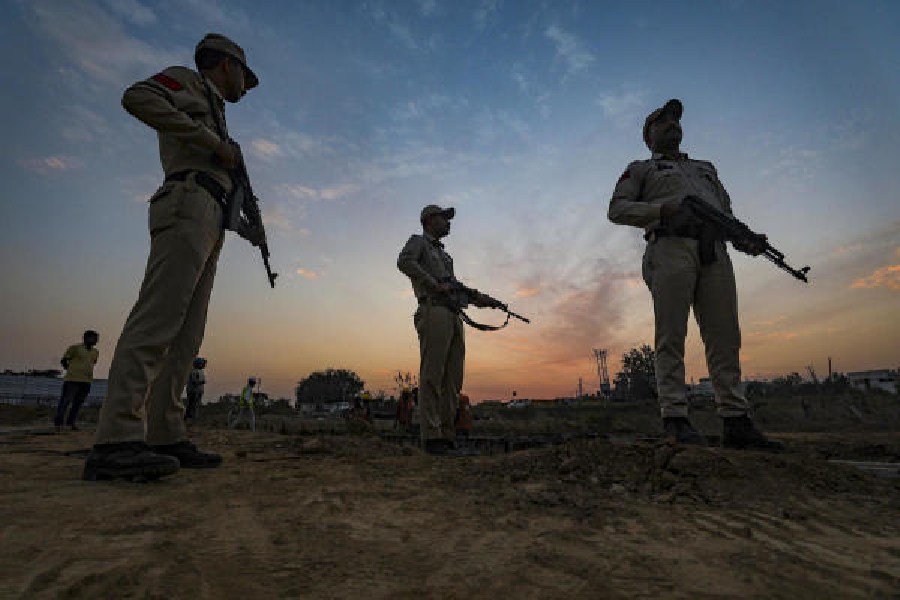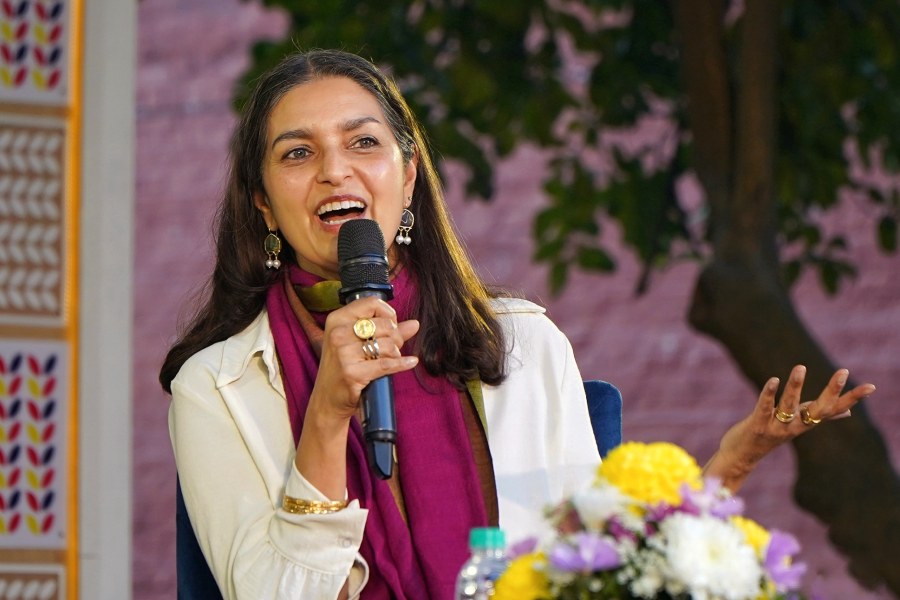On Ekadashi, the women walking into AL Block community hall looked as though they had stepped out of a period drama. One resembled a tribal woman, another a warrior, and yet another wore a frilly blouse with her red sari draped over her head in a ghomta. They were dressed as characters from Tagore’s works and had gathered for a theme-based contest.
Shibani Samanta was dressed as a bride and delivered a poignant monologue about her helplessness in the face of her in-laws’ demands for dowry. She portrayed Nirupama from Dena Paona, a character tormented and abused by her husband’s family until her tragic end. “I detest the dowry system and chose this role as I want to fight it. I feel angry that we still read about dowry deaths some hundreds of years after Tagore had written this story. But more than sermons, I feel such shows will work better to educate society,” she explained.
Shibani had been dressed up by her sister Debalina, who herself had planned to take part as Shyama, but had to withdraw after falling ill in the erratic weather during the Puja.
Sayanti Roychoudhury took stage as the mistress of the house from Tagore’s poem Puratan Bhritya. “This poem describes how people mistreated their domestic help in Tagore’s time, but, come to think of it, nothing much has changed,” shared Sayanti, who wore a red and white sari with a ghumta. “Even today, some still insist on washing their hands if a helper touches them. I feel strongly about this issue and respect my staff greatly. My domestic help sits at my table with me, my garbage collector sits at my table and receives bhai phonta from me.”
Suvra Chakravorty was up next, as Chandalika. “I had performed in this dance drama when I was in school, so it has always been special to me,” smiled the 61-year-old. “Moreover, I am firmly against discrimination and believe differences are created by people, not God,” she said. Suvra performed to Phul bole dhanya ami from the dance drama, and eventually won third place in the event.
The second prize went to Aditi Dutta for her portrayal of the modern, independent Labanya from Shesher Kabita. “Through this character, Tagore asserted that a woman’s role is not merely to sacrifice themselves for her family. Today’s youth hardly has the concentration to read full-length novels but if they did, women readers would find much inspiration, especially in a world where their opinions are still not taken seriously,” she noted.
Claiming the top prize was Sarmistha Banerjee, dressed in a turban and sari draped dhoti-style, as Chitrangada. “Tagore may have lived 100 years ago, but there’s still no contemporary writer quite like him,” she declared. “I echo his message — at home, a woman may be a wife or mother, but in her professional field, she ought to show the same dedication,” said the English teacher. “In the play, Chitrangada attempts to win over Arjun by using a boon to look beautiful, but in the end, Arjun falls for her real warrior self, teaching us that true beauty is inner beauty.”
The event was judged by Subarna Ghosh, lecturer in fashion designing at Amity University, and Soumen Ghosh, guest lecturer of fashion design and a member of massArt, the group promoting Bengali arts and culture, especially during Durga puja.
“This was not a typical fashion show, but more of a styling contest, so we evaluated participants based on their appearance, attitude, and body language,” Soumen explained. “Research is crucial in a project like this — not just on the character but on her era and environment. Details such as the kind of earrings, bindi, hairstyle, and spectacles make all the difference in such a performance.”
The competition was directed by Shyamalee Dutt Mondal, the joint cultural convenor for the block. “Rabindranath amader moner thakur,” she noted. “His characters impart powerful messages, and we wanted residents to revisit his works, even if just to join this contest. It’s unfortunate that many fell ill in the erratic weather and due to hectic puja schedules, and had to withdraw.” A fancy dress for children was also announced on the same day, but only one — Samrita Guha — turned up, dancing as a baul and won the prize.










